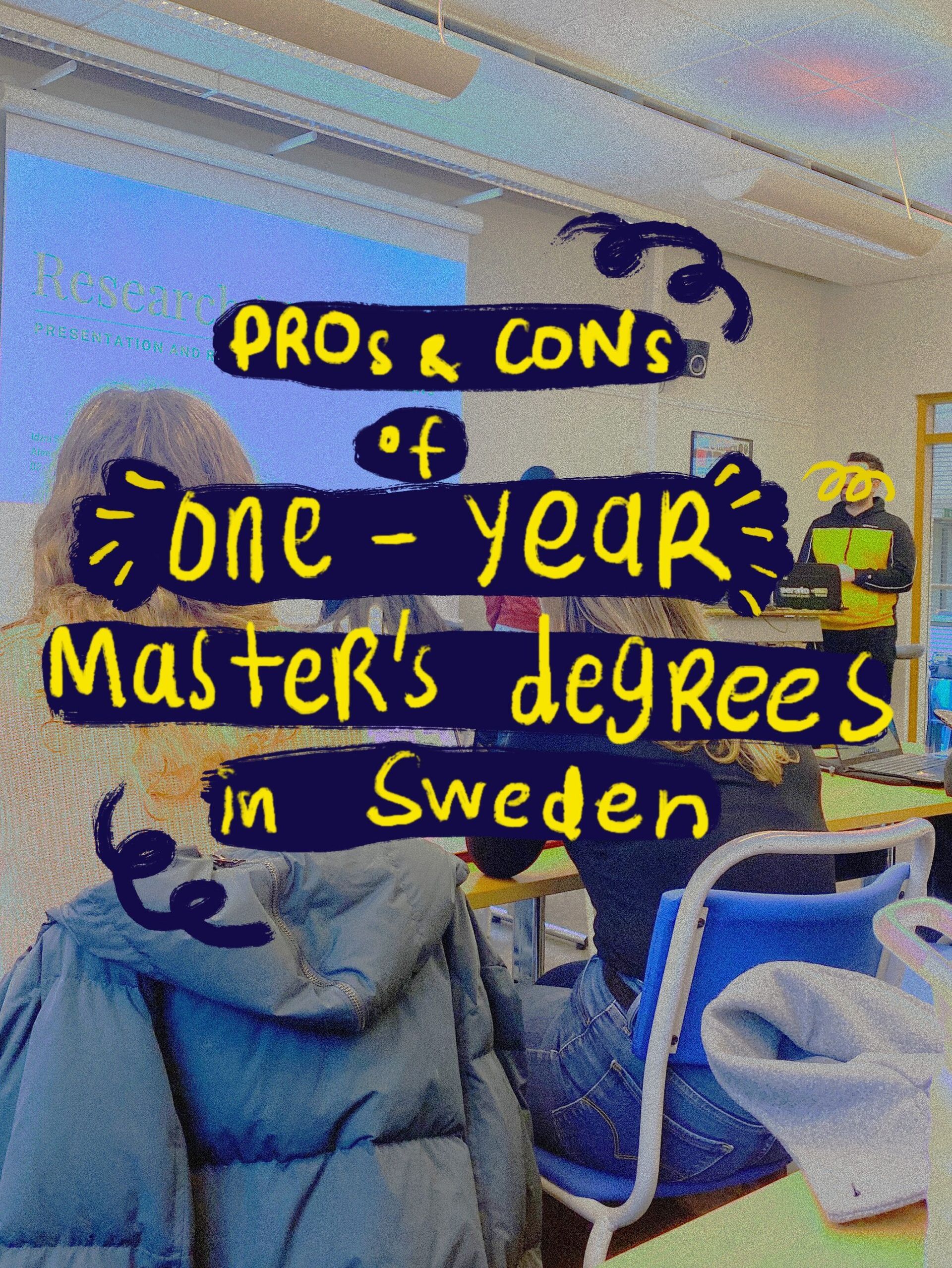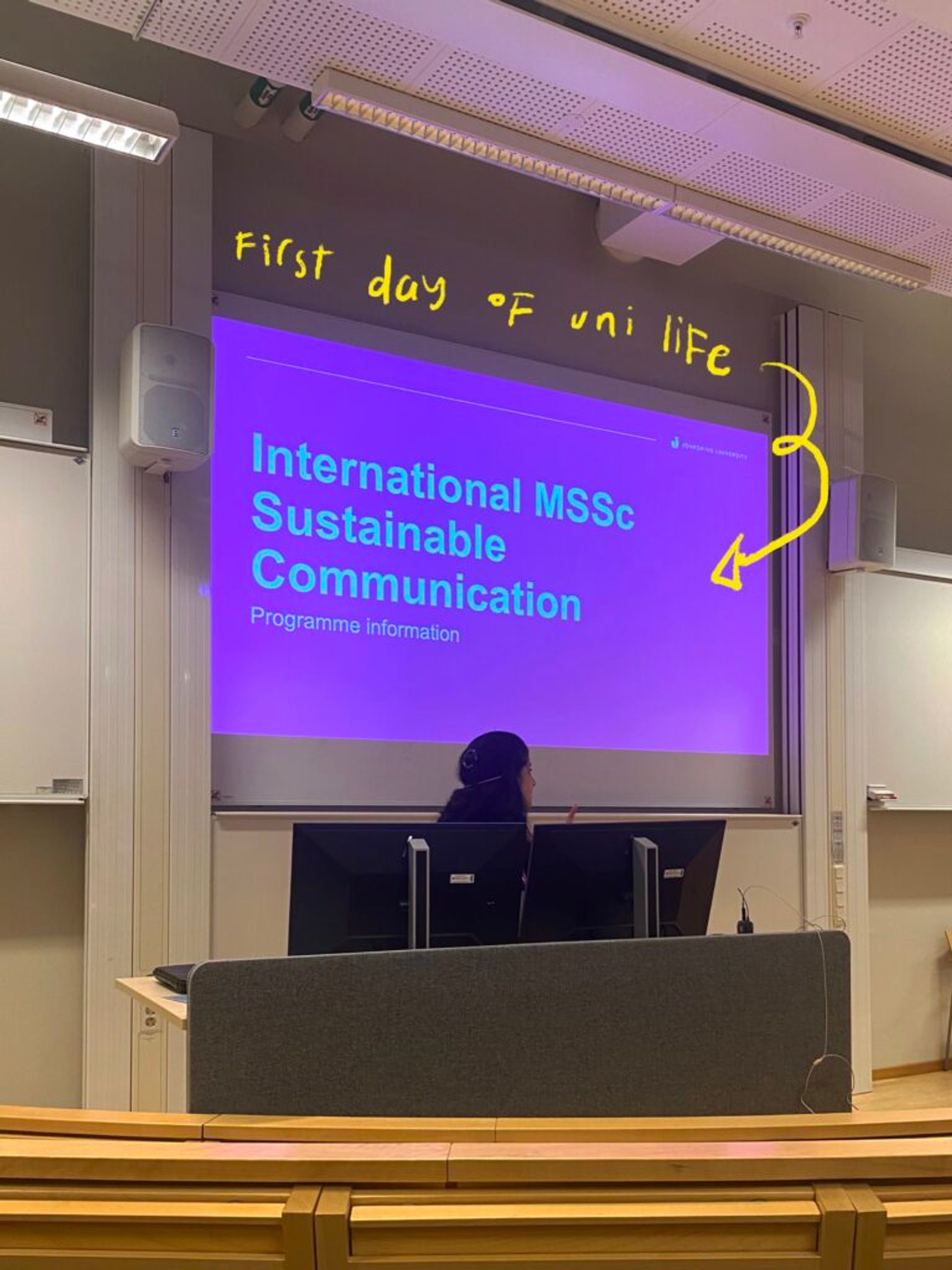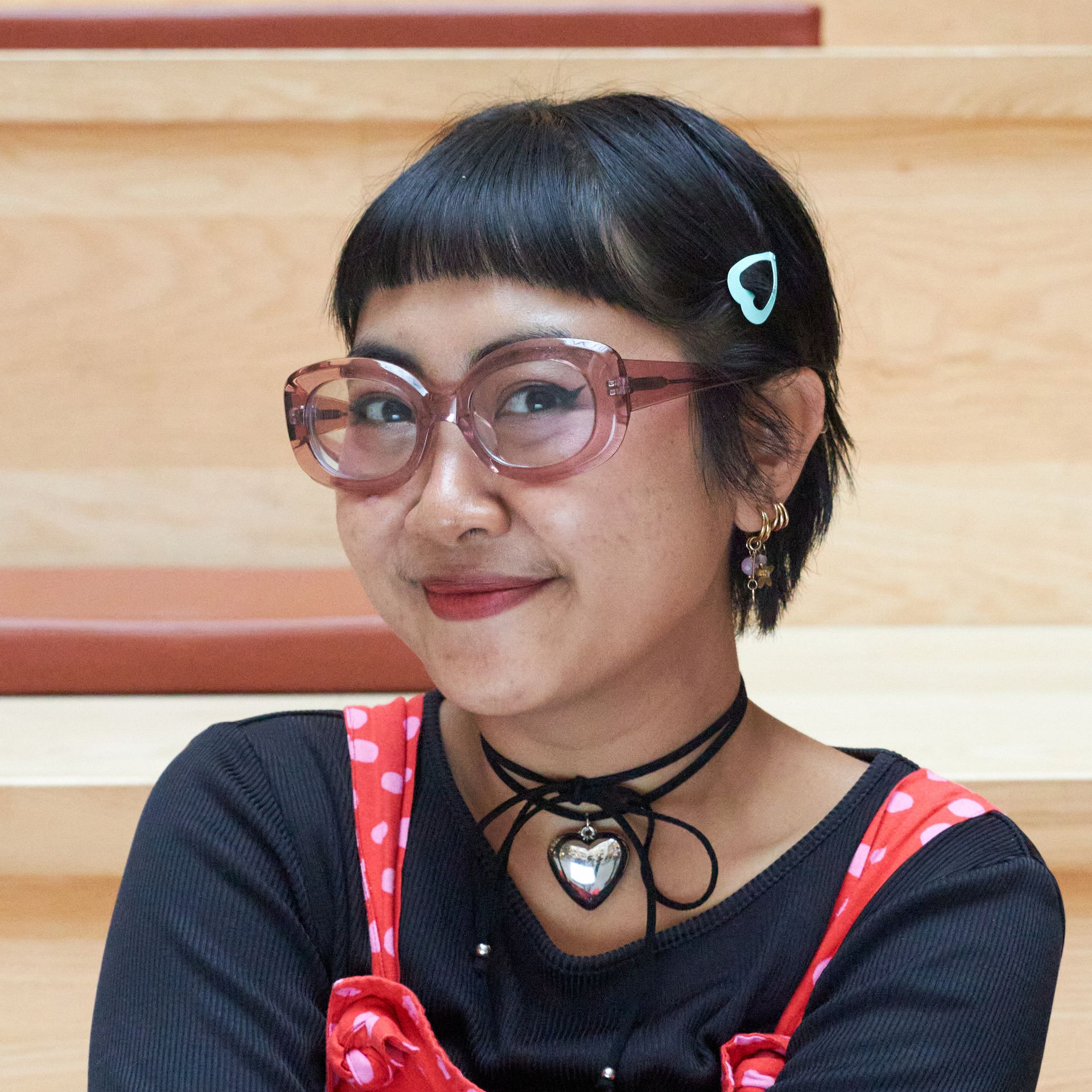
Written by Nana
27 Mar 2024
Completing a master’s degree in less than one year? Isn’t that a dream? Is it too good to be true? Well, Sweden offering one-year Master’s programmes is indeed a really attractive choice! But like everything else in life, there are also some downsides to it. And here, we’ll talk about both sides equally to let you understand your options.
So, I’m currently in my second semester of a one-year Master’s degree in Sustainable Communication at Jönköping University. Here I will go over all of the benefits and drawbacks of doing the one-year Master’s programme in Sweden based on (mainly) my own experience and discussions with my friends. Let’s get to it! ❤️🔥

💫 The perks: 💫
Swift and efficient
The one-year master’s program in Sweden is like a fast-track route to academic success. Yes, because you will get the title of a ‘Master’ in just around 10 months. With condensed courses, they are usually designed with a focus on practical skills and prepare you for the working world (I don’t dream of labour but getting the money is good hehe).
Professional edge
For me I think the one-year Master’s is more suitable for you who already have some professional background. It is perfect for people who want to learn a bit deeply about a certain topic, then continue their career again with a stronger knowledge.
A shorter break from work~
Personally, as I have already worked before pursuing my master’s degree, I didn’t want to take an extended hiatus that will cause me to forget everything and how to perform at work. Also, I work in a dynamic field of communication, so if I leave for too long, I feel as if I am no longer relevant to the position. Et voilá, hence the one-year program option is perfect for me!

😖 The downsides: 😖
Integration hurdles
Sadly you can’t get a Swedish “personnummer” because you stay in Sweden for less than one-year (10 months). And, without this ID number, navigating Swedish society can feel like a labyrinth. Accessing essential services, joining clubs, language courses, even wanting to be a member in a grocery store becomes a challenge (we’re kind of like an alien here >.<).
Limited time
The condensed nature of the one-year master’s program leaves little room for leisurely exploration or extended academic pursuits. You surely need more effort and good time management to also have activities outside of your studies. Balancing studies and personal hobbies may be difficult when you have a limited schedule.
Not enough credits for PhD
If your plan is to pursue PhD after the Master’s degree, then I suggest you take the two-year course as the credits for one-year is not enough to be eligible for a PhD (FYI: a doctoral programme needs 240 ECTS credits). So for those of you who have an eye for being in the academia world longer, maybe this one-year option is not for you.

Let’s ask: Why did you choose a one-year Master’s programme?
Rina, 30 years old, from Indonesia:
“For me honestly the main reason is financial, as I am a non-EU citizen so I have to pay tuition fees. But also, I feel like it is efficient because with just one year I can obtain a degree, and I don’t want to leave a too long gap for my career as well.”
Philip, 27 years old, from Germany:
”Before choosing the program, I read in the university website that you can switch your program while doing it, so I chose the one-year to see it while it goes, and I ended up not changing to two-year because I feel like with one year I already get the knowledge that I need.”
Read Agniezka opinion about one-year Master’s programme here

If you are still unsure, what Philip said is true that you can switch your program from one-year to two-year or vice versa while doing the education. Typically, you can apply to transfer to university between October and December of the first semester. So, no worries, there is a lot of time to think!
Now, what do you think of Sweden’s one-year Master’s degree? Is it the perfect choice for your next study? 😇




